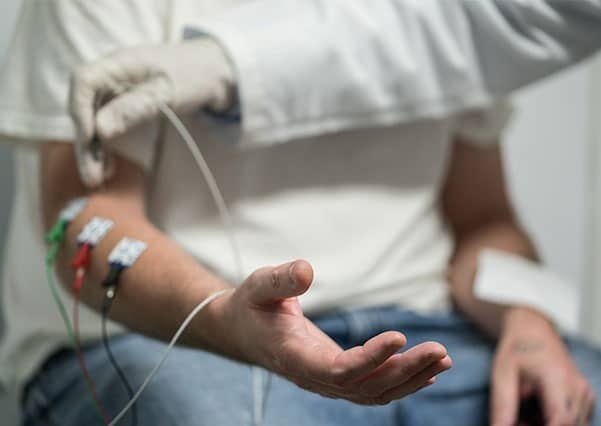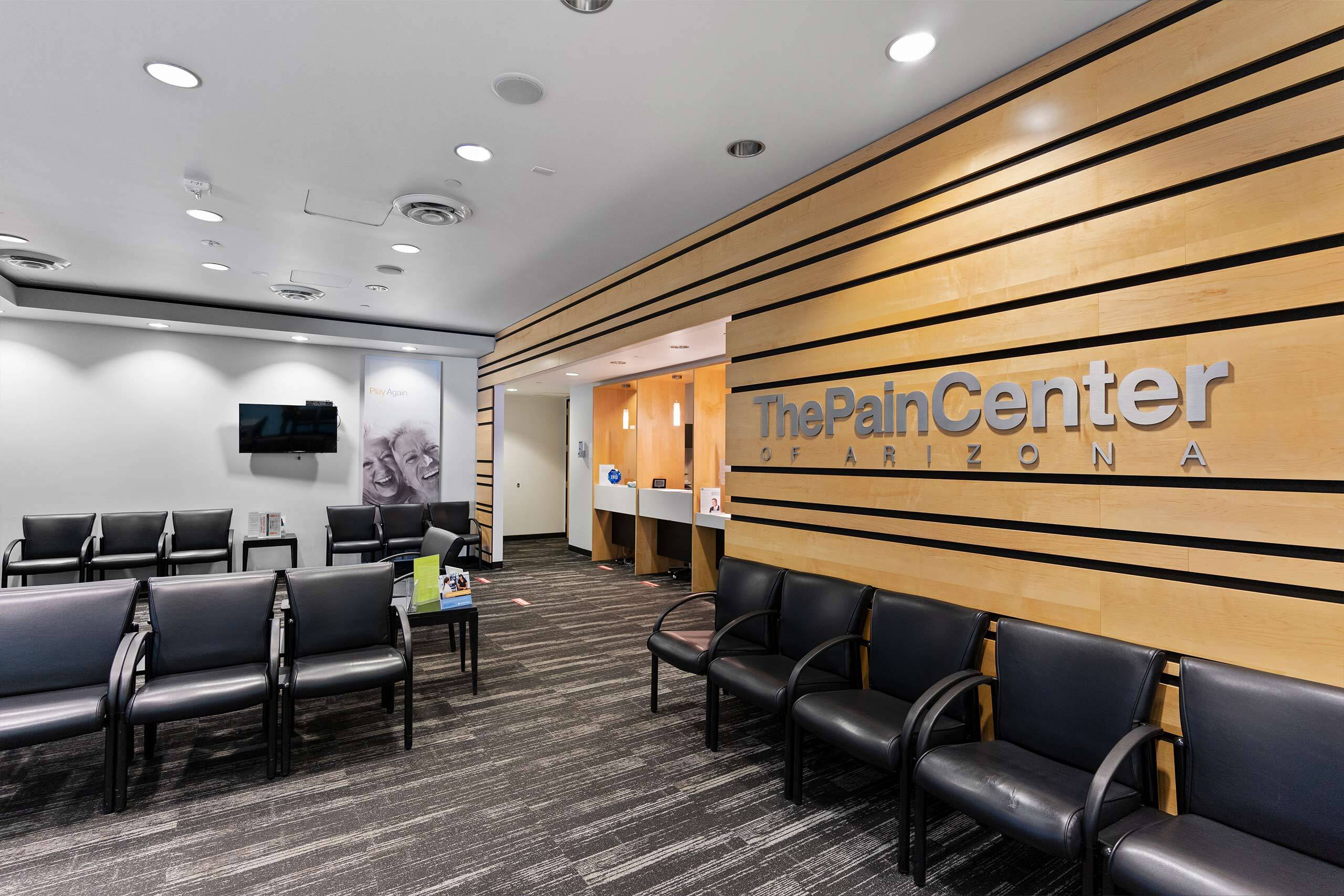Neuropathic Pain
Neuropathic pain is a chronic pain condition that develops when nerve fibers have become damaged or dysfunctional as a result of tissue injury. Damaged nerve fibers may change nerve function at the site of the injury, resulting in misfired or incorrect signals being sent to pain centers in the brain. Phantom limb pain is an example of damaged nerve fibers sending the wrong signals to areas of the brain, causing pain.


Causes of Neuropathic Pain
The cause of neuropathic pain is relatively unknown, but some lifestyle choices, traumatic injuries, and genetic factors may lead to the development of neuropathic pain. Some common causes of neuropathic pain include:
Other causes include:
- Alcoholism
- Diabetes
- HIV or AIDS
- Stroke
- Parkinson’s Disease
- Multiple Sclerosis
- Complex Regional Pain Syndrome
- Shingles/ Postherpetic Neuralgia
- Chemotherapy or Radiation Therapy
- Amputation (Phantom Limb Syndrome)
- Spinal Nerve Compression or Inflammation
- Trauma
- Surgery
- Tumors

Neuropathic Pain Symptoms
Neuropathic pain is typically described as a shooting or burning sensation in the peripheral nerves, brain, and spinal cord that, in some cases, may be chronic, not relieving on its own. Its severity depends on the extent of nerve damage or malfunction of the nervous system.
There are an array of symptoms of neuropathic pain, including:
- Allodynia: pain evoked by sensations that normally don’t cause pain, such as cold temperature, light pressure on the skin, etc. This may also make typically painful sensations more painful than normal, known as hyperalgesia.
- Spontaneous pain sensations such as shooting, burning, stabbing, a feeling of electric shock, tingling, numbness, and “pins and needles.”
- Hypalgesia: pain sensations lessened by normally painful stimuli
- Sleep disturbance as a result of pain
- Emotional problems as a result of pain and sleep disturbance

How to Treat Neuropathic Pain
Professional treatment of your neuropathic pain will attempt to treat any underlying disease causing nerve pressure or pain, relieve your chronic pain sensations, maintain and restore functionality, and improve the overall quality of your life.
Required treatments for neuropathic pain typically include:
- Medicines (anti-seizure or antidepressant drugs)
- Physical Therapy
- Psychological Counseling
- Surgery (in some cases)
Mild neuropathic pain may only require conservative treatments such as rest, ice, and nonsteroidal anti-inflammatory drugs (NSAIDs) for adequate pain relief.
Moderate to severe cases of neuropathic pain may benefit from transcutaneous electrical nerve stimulation or spinal cord stimulation, depending on the nerves that have been affected. Injections or nerve blocks may also be administered for neuropathic pain that affects specific tissues and muscle groups.
Although it is a complex process to treat and ultimately eradicate neuropathic pain, it’s very rare that it’s ever life-threatening. With multimodal therapy for pain management that accounts for the whole person, there’s plenty of hope that pain relief and quality of life will improve with consistent and informed treatment.


Get the care you need within 24 hours*
We know when you’re looking for relief for your chronic pain, you can’t wait any longer than you already have. This is why we can schedule you with an appointment within 24 hours at most of our pain centers across the Valley, so you can start your journey to life-long pain relief as soon as tomorrow.



